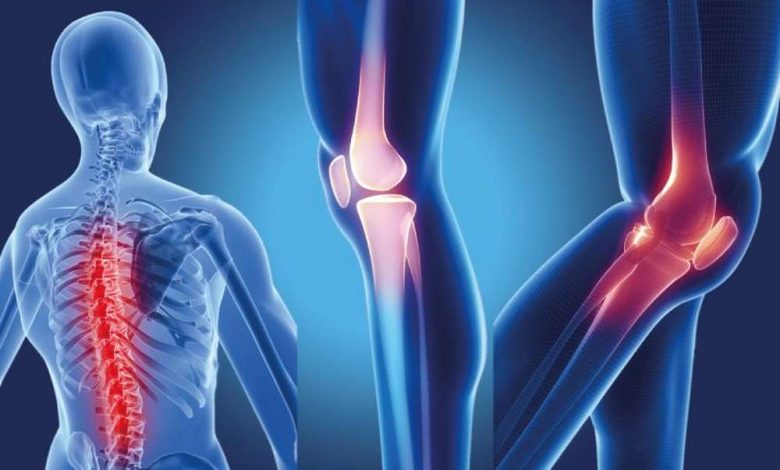Swelling, joint swelling: What's it, causes, symptoms, diagnostics, treatment, prevention

Joint swelling; Swelling of a joint
Joint swelling is a common symptom, which can be caused by various factors, including injuries, arthritis, infection and other diseases. Most often, swelling of the joint is associated with the accumulation of fluid in the soft tissues., surrounding the joint, or in the joint.
What is joint swelling?
joint swelling, also known as joint effusion, is an accumulation of fluid in the joint space. This can lead to, that the joint becomes enlarged, sensitive and painful. Joint swelling can occur in any joint, including knees, Ankle, wrists and fingers.
Causes of swelling of the joints
Swelling of the joints can be caused by various conditions, including:
- chronic type of arthritis – called ankylosing spondylitis
- Painful type of arthritis, caused by the accumulation of uric acid crystals in the joint (gout)
- Arthritis, caused by joint wear (osteoarthritis)
- Arthritis, caused by the accumulation of calcium-type crystals in the joints (pseudogout)
- Disorder, which includes arthritis and skin conditions, called psoriasis (psoriaticheskiy arthritis)
- State group, affecting the joints, eyes, urinary and reproductive systems (reactive arthritis).
- joint inflammation, surrounding tissue, and sometimes other organs (rheumatoid arthritis)
- joint inflammation due to infection (septicheskiy arthritis)
- Disease, in which the body's immune system attacks healthy tissue (systemic lupus erythematosus)
Symptoms of swelling of the joints
Symptoms of joint swelling may vary depending on the underlying cause.. Some common symptoms include:
- Pain
- Joint stiffness
- Limited range of motion
- Redness
- Fever
- Fever
When to see a doctor
If you experience severe joint swelling, that lasts more than a few days or is accompanied by other symptoms, such as fever or redness, it is important to see a doctor. Besides, if you have a history of arthritis or other medical conditions, which can cause joint swelling, it is important to monitor the symptoms and consult a doctor, if they get worse.
Questions, that your doctor may ask
During your appointment, your doctor may ask you questions about your symptoms., medical history and lifestyle. Some general questions, that your doctor may ask, include:
- When did you first notice joint swelling??
- Whether swelling occurs in one or more joints?
- Have you ever had an injury to the affected joint?
- Do you have a history of arthritis or other medical conditions?
- Have you had a history of arthritis or other medical conditions in your family??
- Are you currently taking any medications??
- Are you involved in any activities or sports, which can contribute to joint swelling?
Diagnosis of joint edema
To diagnose the underlying cause of joint swelling, the doctor may conduct a physical examination and order imaging studies, such as x-ray, MRI or ultrasound. Besides, blood tests may be ordered to check for signs of infection, inflammation or autoimmune disease.
Joint swelling treatment
Treatment for joint swelling depends on the underlying cause. Some common treatments include:
- Rest and elevation of the affected joint
- Applying ice or heat to the affected joint
- Taking over-the-counter painkillers, such as acetaminophen or ibuprofen
- Medicines, prescription, such as corticosteroids or antirheumatic drugs, disease modifying
- Physiotherapy
- Operation – in severe cases
Home treatment for joint swelling
In addition to medical treatment, there are several ways to manage joint swelling and speed up healing at home.. Some home treatment options include:
- Maximum rest of the affected joint
- Applying ice or heat to the affected joint
- Elevation of the affected joint above the level of the heart
- Taking over-the-counter painkillers, such as acetaminophen or ibuprofen
- Use of assistive devices, such as staples or splints, to support the affected joint
- Light physical exercise, such as swimming or yoga
Prevention of swelling of the joints
Although it is most often impossible to prevent all cases of joint swelling, there are several methods, which you can do, to reduce the risk. Here are some prevention tips:
- Regular exercise to maintain joint flexibility and strength.
- Maintaining a healthy weight to reduce stress on joints
- Wearing proper protective equipment when playing sports or other high-impact activities
- Eat a healthy balanced diet, to improve overall health and reduce inflammation
- Avoid smoking and excessive alcohol consumption
Conclusion
Joint swelling can be painful and uncomfortable, which can be caused by a number of factors. If you experience joint swelling, it is important to see a doctor, to determine the underlying cause and develop an appropriate treatment plan.
In addition to drug treatment, there are several things, what you can do at home, to cope with swelling of the joints and accelerate healing. Taking steps to prevent joint swelling and maintain overall joint health, you can reduce your risk of this symptom in the future.
Used sources and literature
West SG. Systemic diseases in which arthritis is a feature. In: Goldman L, Schafer AI, eds. Goldman-Cecil Medicine. 26th ed. Philadelphia, PA: Elsevier; 2020:chap 259.
Woolf AD. History and physical examination. In: Hochberg MC, EM Gravallese, Silman AJ, Smolen JS, Vine leaf ME, Weisman MH, eds. Rheumatology. 7th ed. Philadelphia, PA: Elsevier; 2019:chap 32.
Van Vollenhoven RF. Evaluation of monoarticular and polyarticular arthritis. In: Firestein GS, Budd RC, Gabriel SE, Koretzky GA, McInnes IB, O'Dell Jr, eds. Firestein & Kelley’s Textbook of Rheumatology. 11th ed. Philadelphia, PA: Elsevier; 2021:chap 45.
